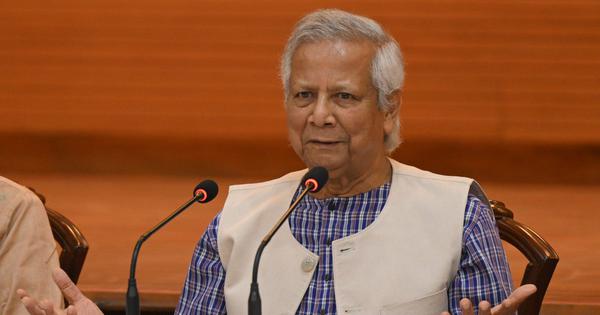Yunus emphasizes regional cooperation and shared development among South Asian nations during his address.
Bangladesh’s Chief Adviser Muhammad Yunus has called for the revival of the South Asian Association for Regional Cooperation (SAARC) during his address at the United Nations General Assembly. Established in 1985, SAARC is an intergovernmental organization comprising eight South Asian countries: India, Pakistan, Bangladesh, Sri Lanka, Nepal, Maldives, Bhutan, and Afghanistan. However, the organization has remained largely inactive for nearly a decade due to ongoing tensions between India and Pakistan.
The last biennial summit of SAARC was held in Kathmandu, Nepal, in 2014. The planned summit in 2016 was set to take place in Islamabad but was ultimately canceled after India withdrew its participation following the Uri terror attack in Jammu and Kashmir. Subsequently, Bangladesh, Bhutan, and Afghanistan also declined to participate in the summit.
In his address on Friday, Yunus emphasized that there is no alternative to regional cooperation among neighboring countries, urging for shared development as a pathway forward. He noted that SAARC had made significant progress during its early years, establishing a solid foundation for regional collaboration. Despite the political deadlock that has characterized recent years, Yunus remarked that the institutional framework of SAARC remains intact.
Yunus expressed confidence in SAARC’s potential to deliver welfare to the hundreds of millions of people in the region. His remarks came shortly after a meeting on Tuesday with Sergio Gor, the United States’ special envoy for South and Central Asia and ambassador-designate to India. During this meeting, Yunus highlighted Bangladesh’s intensified efforts to revive SAARC.
He characterized SAARC member nations as a “close family” and recalled that the inception of SAARC was rooted in Bangladesh. Yunus pointed out that Bangladesh had been actively promoting the concept of SAARC from capital to capital within the South Asian region. He reflected on the historical context, stating, “Our history gives us the opportunity but somehow it did not fit into the politics of one country,” which seems to reference India. He expressed regret over the current situation, indicating that the political dynamics have hindered progress.
Yunus, a Nobel laureate in economics, assumed the role of Chief Adviser of Bangladesh’s interim government shortly after Sheikh Hasina resigned from her position as prime minister and fled to India in August 2024. This resignation followed weeks of student-led protests against her Awami League government. Hasina’s departure marked the end of her sixteen-year tenure as prime minister. Since the change in government in Dhaka, relations between Bangladesh and India have become strained, with New Delhi often perceived as having favored Hasina’s leadership in terms of its strategic interests.








